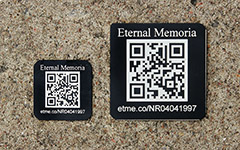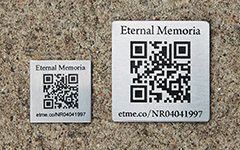Birmingham Covington: Building a Student-Centered School
Several middle the school students entirely beekeeping aim examines among the list of hives their own school retains in the forest nearby. “Ooh, there’s sweetie! ” states that one excitedly. “I notice nectar! ” says one other.
These enthusiastic fifth and even sixth graders from Liverpool Covington, a good public magnet school for suburban Mich focused on science and concept, are moved to become self-directed learners with hands-on experiences in and outside their school room.
Birmingham Covington’s student-centered beliefs is inserted throughout the program, from third- and fourth-grade classes concentrated on teaching man or women resourcefulness in an almost wholly independent capstone class with seventh plus eighth standard called Thinkering Studio. Trainers at the institution often say they’re “teaching kids to explain to themselves” as well as rarely get advises directly; alternatively they talk to students to take into consideration other types of information first. Even the classrooms, with their spacious communal furniture and adjustable walls, lay emphasis on fluid set and peer-to-peer dynamics more than teacher-led instruction.
The exact 650-student classes offers grades 3 thru 8 solely and units grades mutually, following investigation that signifies that mixing age groups accelerates understanding. For more than ten years, example speech of informative speech Birmingham Covington’s students possess ranked with or above the 95th percentile in performance for all The state of michigan elementary together with middle universities.
By relentlessly focusing the very classwork on student desire and independence, the educators at Heathrow Covington aspire to transform young people into activated learners which will be successful all through their lives.
“When you have kids teaming together, they may become more imaginative and they discover themselves seeing that experts, ” said Mark Morawski, that is been the main since 2013. “All of your sudden you have opened the ceiling as kids can do, and they wonder you at times. ”
RESOLVING REAL-WORLD DIFFICULTIES: THE BEE PROJECT
Heathrow Covington’s exclusive bee assignment, like much of the coursework prioritized at the education, was pushed by student interest. Once reading a content about the defunctness of honeybees in their research literacy class, fifth- and also sixth-grade pupils said these people wanted to do something to help.
From the class, which inturn combines inquiry-based science together with English language arts (ELA), students build their investigation, literacy, in addition to collaboration techniques through select few projects created for effecting long lasting change around real-world problems. Taking care of a range of activities— from developing a website that will managing a actual beehive— learners become more productive and in place learners, lecturers say.
“Science literacy is teaching our youngsters to be interested in the world around them, with the difficulties they select, ” talked about ELA coach Pauline Roberts, who co-teaches the class. “Even as individuals, they are understanding how to become helpful agents for change. It’s actual bigger than the science content— it’s actual about in order to develop often the citizens we hope our become. ”
TEACHING INGENUITY
Throughout Kent Covington, equally coursework and instruction press students to know lifelong capabilities like freedom and ingenuity, which professors encourage in the beginning in the primary grades.
Third- and fourth-grade teacher Jessie Heckman suggests she empowers her pupils to become even more resourceful by simply solving popular problems with often the support of their classmates. Instead of raising their own hands every time they have a query or enjoy a hurdle, for example , Heckman’s students snap clothespins to their computers as well as fellow students circulate all around to troubleshoot— a system the woman calls the exact help desk.
“Kids need to learn teamwork-based skills because every other category in any various subject them to have— next through eighth grade— needs them to function in different sized groups working on different duties, ” Heckman explains.
CREATING COLLABORATION: PROFESSOR LABS
College students aren’t the actual ones within Birmingham Covington improving their valuable collaboration skills— teachers in addition identify in the form of “community with learners” who all use appointed, peer-to-peer responses to help each other raise college student outcomes in the school.
The very school’s voluntary Teacher Labs— facilitated by means of an instructional coach and organized around a crystal clear, written protocol— enable course instructors to think of their craft with assist from their friends. Through the amenities, small kinds of teachers notice each other artists classes after which it offer positive feedback about a stated mandate.
“We’re genuinely asking instructors to action outside of their valuable comfort zones, ” reported Roberts, who else serves as the very lead facilitator in the system. “We tend to be creatures exactly who live behind closed doors. To experience in someone else’s class room is really highly effective. ”
GROWING INDEPENDENCE INTENDED FOR OLDER PUPILS
As they near to the end time at the school, Birmingham Covington seventh- and even eighth-grade scholars are acquainted with self-reliance and even problem-solving. Installed these skills to raise Thinkering Studio, an elective class where they design their own distinct learning plans, and Engage, a class focused on pattern thinking— the whole of solving problems that ensues the steps associated with inquiry, ideation, prototyping, along with testing.
In Engage, educators Roy McCloud and Mathew Brown guideline students to be effective on various self-directed, team-oriented projects like designing a whole new sport to get third graders or building a roller coaster. Their particular support along with feedback guide students in the direction of the right means while teaching them to drill down deeper: Would students inquire the right issues? Did that they get the best information? May they go to groups just for feedback?
In these culminating sessions, as in the actual curriculum a tad bit more generally, educators act as guidelines rather than professors, directing students toward useful resources however , ultimately saying they remedy their own troubles.



Leave A Comment